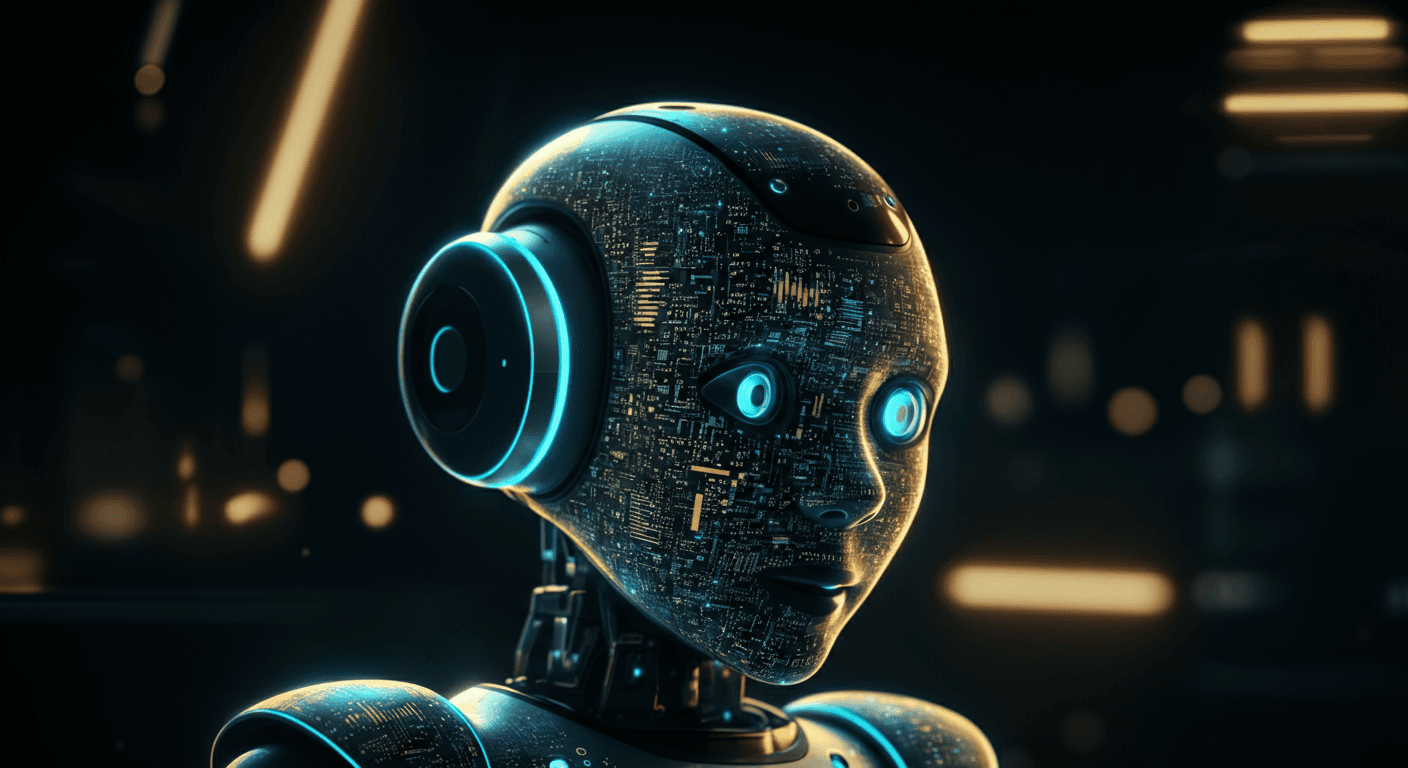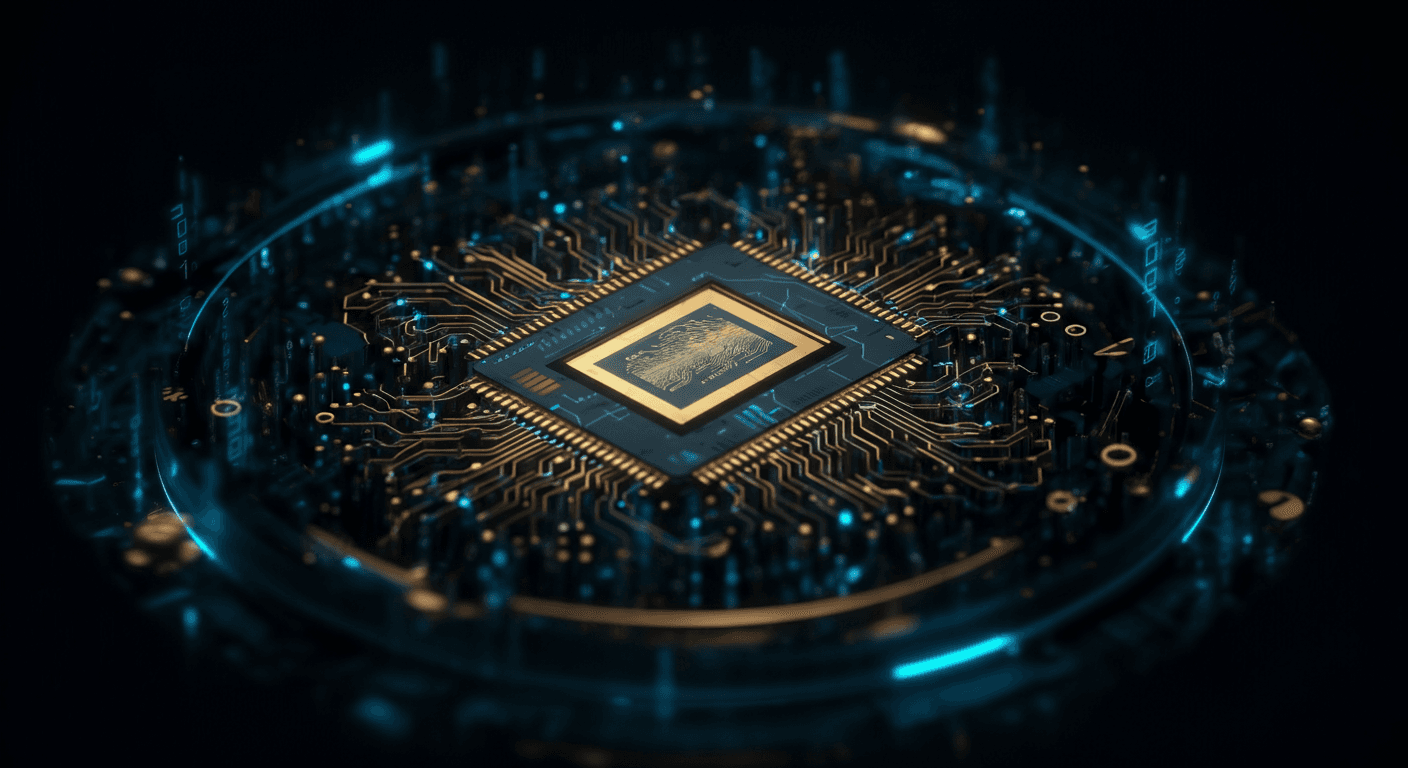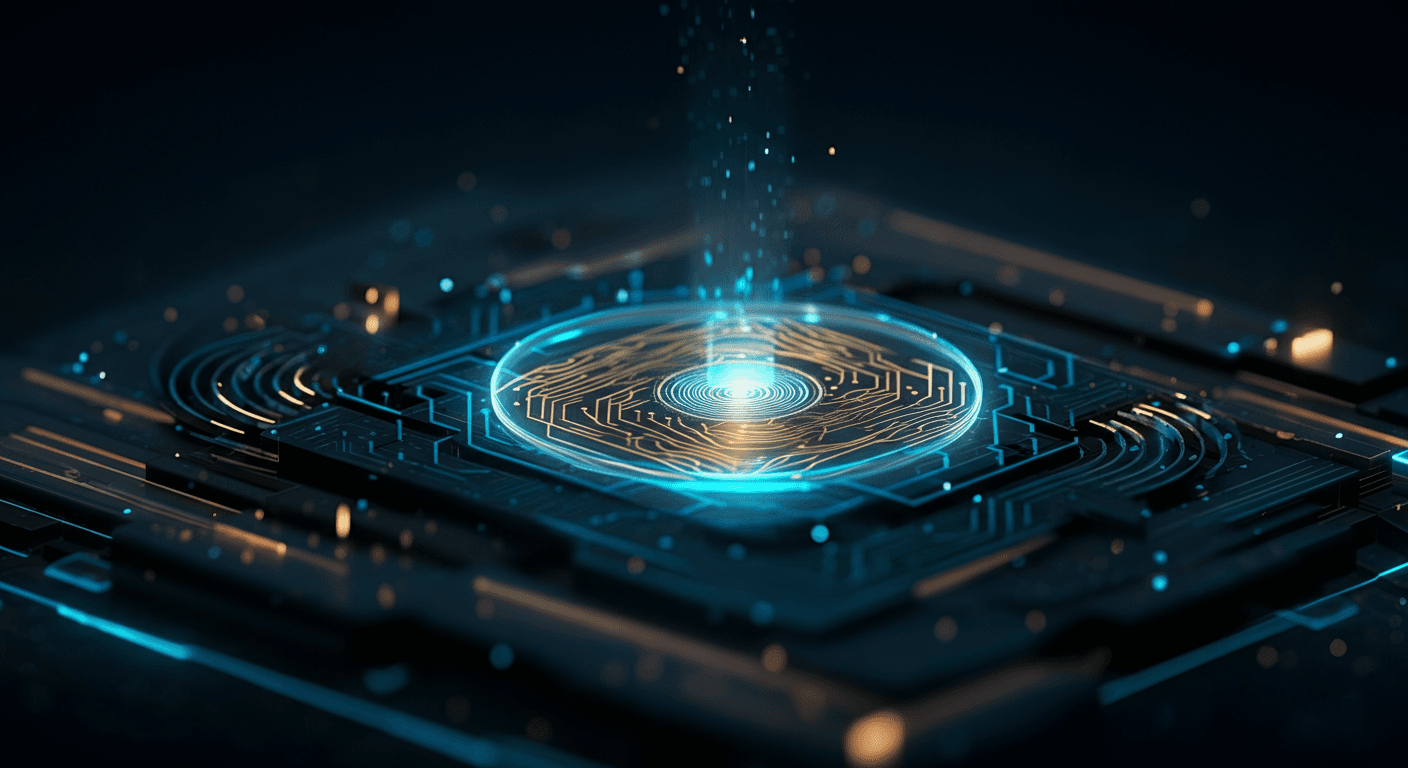NAO Robots: The Definitive Guide to Applications, Programming, and Future Potential

Introduction to NAO Robots: A Versatile Platform
Can a robot be both an advanced research tool and an engaging educational companion? The NAO robot, a humanoid robot developed by SoftBank Robotics, strives to embody this duality. It represents a significant step forward in accessible robotics.
Key Features
The NAO robot stands out due to its compelling blend of features:
- Programmability: Using software like Choregraphe, researchers, educators, and developers can tailor NAO's behavior to a wide range of applications. It's like giving the robot a new set of cognitive skills.
- Sensors: Equipped with cameras, microphones, and tactile sensors, NAO perceives its environment, allowing it to interact intelligently with its surroundings. Think of it as equipping the robot with enhanced senses.
- Humanoid Form Factor: Its expressive design and bipedal movement make it relatable and engaging, especially in educational settings. It makes interacting with AI much more intuitive.
Target Audience
NAO’s versatility makes it valuable for several key groups:
- Researchers: For studying human-robot interaction, artificial intelligence, and cognitive science. For example, it can be used to study the effects of robot appearance on user trust.
- Educators: As a tool for teaching programming, robotics, and STEM concepts in an interactive way. Imagine engaging students through hands-on experience with AI.
- Developers: As a platform for creating innovative robotic applications, from assistive technologies to entertainment. This offers freedom to experiment and create.
Adaptability in Use Cases

NAO's adaptability means it has a surprising number of use cases:
- Healthcare: Assisting patients with rehabilitation exercises or providing companionship.
- Education: Engaging students in robotics and programming lessons.
- Research: Providing a platform for studying human-robot interaction.
In summary, the NAO robot, stemming from the history of NAO robot definition , presents a versatile platform. Let's explore its programming aspects to understand its potential for customization and problem-solving.
NAO Robot Technical Specifications: Hardware and Software Overview
The NAO robot is a complex and versatile platform; understanding its technical underpinnings is essential for effective application development and research. Let’s dive into the specifics.
Physical Characteristics
- Dimensions: The NAO robot is about 58 cm tall, making it a human-sized but easily manageable platform.
- Weight: Weighing in at approximately 5.4 kg, it's substantial enough for stability, yet light enough for transport.
- Degrees of Freedom (DOF): It boasts 25 degrees of freedom. These DOFs, spread across its limbs and head, enable a wide range of movements and poses.
Sensor Suite: The Robot's "Senses"
- Cameras: Two high-resolution cameras provide stereo vision. These cameras allow for depth perception, object recognition, and navigation capabilities.
- Microphones: Four microphones are strategically positioned for directional hearing. This setup enables the robot to locate sound sources, understand speech, and engage in complex audio interactions.
- Sonars: Equipped with sonar sensors, the NAO robot can detect objects and distances in its environment, crucial for autonomous navigation and obstacle avoidance.
- Tactile Sensors: These sensors are embedded throughout the robot's body to detect touch and pressure.
- IMU: An Inertial Measurement Unit provides data on the robot's orientation and acceleration, essential for maintaining balance and coordinating movements.
Actuators: Making Moves
- Motors: Numerous motors distributed throughout the body control the robot’s movements, allowing for precise and coordinated actions.
- Speakers: Stereo speakers allow the robot to output speech, sound effects, and music, enhancing its interaction capabilities.
- LEDs: With multiple LEDs located around the body, NAO can express emotions, provide feedback, or signal status.
Software Architecture: The Brains of the Operation
- NAOqi OS: The robot runs on NAOqi OS architecture, a proprietary operating system designed specifically for robotics. It provides a comprehensive set of APIs and tools for controlling the robot's hardware and software.
- SDK: A software development kit (SDK) enables developers to create custom applications. The SDK supports multiple programming languages, facilitating accessibility for a wide range of developers.
- Programming Languages: The NAO robot primarily supports Python and C++, two versatile languages favored for their extensive libraries and ease of use.
Communication
- Wi-Fi: Integrated Wi-Fi allows the robot to connect wirelessly to networks, enabling cloud-based processing, remote control, and data exchange.
- Ethernet: An Ethernet port offers a stable wired connection for reliable communication in environments where wireless connectivity might be limited or unreliable.
In summary, understanding the NAO robot specifications – from its physical attributes and sensor types to its sophisticated software – is essential for anyone looking to harness its potential. Next, let's explore the diverse applications where this innovative robot is making a real difference.
Programming NAO Robots: Languages, Tools, and Frameworks requires mastering specific languages and utilizing specialized tools.
Setting Up Your Development Environment
First, download and install the NAOqi SDK. This SDK provides essential libraries and tools for interacting with the robot, acting as the bridge between your code and NAO's functionalities. Think of it as equipping yourself with the right set of wrenches to tinker with NAO's inner workings.Next steps include:
- Configuring your IDE (e.g., PyCharm, Visual Studio)
- Setting environment variables to point to the NAOqi SDK
- Installing necessary dependencies
NAOqi SDK and APIs
The NAOqi SDK provides access to NAO's capabilities. It includes APIs for:- Motion: Controlling NAO's movements, walking, and gestures. Example: Making NAO wave its hand.
- Speech: Enabling NAO to speak and understand spoken language. Example: Having NAO introduce itself.
- Sensors: Accessing data from NAO's cameras, microphones, and tactile sensors. Example: Detecting an object in front of NAO.
Code Examples: Python and C++
python
Python Example: Making NAO speak
from naoqi import ALProxy
tts = ALProxy("ALTextToSpeech", "NAO_IP_ADDRESS", 9559)
tts.say("Hello, I am NAO!")
cpp
// C++ Example: Walking
#include
AL::ALMotionProxy motion("NAO_IP_ADDRESS", 9559);
motion.move(0.1, 0.0, 0.0); // Forward 0.1 meters
Replace "NAO_IP_ADDRESS" with your robot's IP address.
Choreographe: Visual Programming for NAO
Choregraphe, a SoftBank tool, offers a visual interface for creating NAO behaviors. Users can drag and drop boxes representing actions (e.g., walking, speaking), connecting them to define a sequence. It's like flowcharting NAO's actions, making programming accessible even to those without extensive coding experience."Choregraphe simplifies initial development and behavior prototyping."
Advanced Programming Techniques
Take your NAO programming to the next level by exploring:- Behavior Trees: Create complex, reactive behaviors.
- ROS Integration: Connect NAO to a broader robotics ecosystem.
From basic movement to complex interactions, NAO robot programming is an adventure in bringing artificial intelligence to life. Next, we will discuss some real-world applications and the exciting potential they hold.
NAO Robot Applications: Real-World Use Cases and Examples
The NAO robot isn't just a piece of tech; it's a versatile platform impacting diverse fields, thanks to its programmability and humanoid form.
Education: STEM Learning Made Engaging
NAO's impact on education is impressive:
- STEM subjects: NAO makes complex topics accessible and fun, breathing life into science, tech, engineering, and math.
- Robotics and programming: Students learn essential coding skills through hands-on interaction. For instance, using a software developer tools, students can modify NAO's movements and behaviors.
- Imagine learning algorithms not from a textbook, but by choreographing a dance for NAO!
Healthcare: Compassion in Robotics
NAO is making strides in patient care:
- Autism therapy: NAO robot autism therapy utilizes the robot's predictable behavior to help children develop social skills.
- Elderly care: Provides companionship and assistance, improving the quality of life for seniors.
- Patient interaction: Serves as a friendly face in hospitals, easing anxiety and providing information.
Research: Pushing the Boundaries of Human-Robot Interaction
NAO serves as a research platform for:
- Human-robot interaction (HRI) studies: Researchers gain insights into how humans respond to and interact with robots, crucial for designing more intuitive machines.
- Cognitive science: Helps study human cognition by attempting to replicate thought processes in a robotic system.
- AI development: Allows exploration of AI in real-world scenarios, paving the way for more advanced AI solutions.
Customer Service: Robots as Service Providers
- NAO robot customer service examples include greeting guests, providing information, and even entertaining customers in retail and hospitality settings.
Entertainment: From Dance to Theater
NAO isn't all work; it's also entertainment:
- Dance, music, and theater: NAO's expressive movements and programmability make it a captivating performer on stage.
Advantages and Limitations of NAO Robots
NAO robots offer a compelling blend of versatility, programmability, and an engaging form factor, making them attractive for various applications. However, it's essential to consider their limitations in battery life, processing power, and cost.
NAO Robot Pros and Cons
- Versatility: NAO robots are adept at performing diverse tasks, from research to education and entertainment. For example, they can be used in educational settings to teach coding or in healthcare to assist patients.
- Programmability: Developers can customize NAO's behavior using languages like Python, opening doors for tailored applications. The ability to program these robots makes them useful tools for software developers looking to explore robotics.
- Engaging Form Factor: Their humanoid shape and expressive capabilities can make interactions more natural and appealing, especially in educational or therapeutic settings.
NAO Robot Limitations
- Battery Life: Limited battery life can restrict the duration of continuous operation, impacting real-world usability.
- Processing Power: While capable, their processing power is constrained compared to more advanced robots, potentially limiting complex tasks.
- Cost: The price point can be a barrier to entry for many individuals and smaller organizations, especially when compared to NAO robot alternatives.
NAO Robot Alternatives
Considering NAO robot limitations, exploring alternatives is often worthwhile. For instance, other humanoid robots may offer enhanced capabilities at a higher price, or specialized robots could be more cost-effective for specific tasks. It's essential to analyze your needs and budget to find the best fit.
Sure, here is the markdown content for the section "The Future of NAO Robots: Trends and Potential Developments", incorporating all requirements:
The Future of NAO robots is looking bright, with exciting possibilities on the horizon.
Hardware Advancements
NAO robots could become even more capable through hardware improvements:- Enhanced sensors: Improved vision, depth perception, and tactile feedback.
- More powerful processors: Enabling faster and more complex computations for real-time decision-making.
- Extended battery life: Allowing for longer operational periods without frequent recharges.
Software Enhancements
Expect software to unlock new potential in NAO robots:- AI-driven behavior: More adaptive and personalized interactions using conversational AI. Conversational AI tools allow robots like NAO to engage in more natural and intuitive dialogues.
- Natural language processing (NLP): Refining understanding and generation of human language, enabling more nuanced communication.
- Emotional intelligence: Incorporating the ability to recognize and respond to human emotions for improved social interaction. This allows for more empathetic responses, enhancing the NAO robot's role in caregiving or education.
New Applications
The future of NAO robots extends to various fields:- Personalized education: Adapting to individual student learning styles and providing customized support.
- Advanced healthcare: Assisting in patient monitoring, rehabilitation, and therapeutic interventions.
- Assistive robotics: Supporting individuals with disabilities in daily tasks and promoting greater independence.
Ethical Considerations of NAO Deployment
As NAO robot AI integration deepens, it's crucial to address the ethical AI considerations. Ethical AI ensures the technology is used responsibly and avoids unintended consequences.- Privacy: Ensuring responsible handling of personal data collected by NAO robots.
- Bias: Mitigating potential biases in AI algorithms to ensure fair and equitable treatment.
- Job displacement: Addressing the impact on employment as robots become capable of performing tasks traditionally done by humans.
Robotic malfunctions can be as frustrating as a software bug, but fear not, even NAO robots need a little TLC.
Common Issues and Solutions

If your NAO robot suddenly decides it's nap time and refuses to power on, or it's developed a limp worthy of a pirate, this guide's for you. Think of it as robotic first aid!
- Robot Not Turning On:
- Check the power adapter and connections. Ensure they are securely plugged in. A loose connection is often the culprit.
- Verify the battery is charged. Even robots need their juice! Use the charging station and let it charge fully before attempting to power on again.
- Inspect the emergency stop button. Make sure it's released. It's there for safety, but sometimes it gets accidentally engaged.
- Motor Malfunctions:
- Listen for unusual noises from the motors. Grinding or clicking can indicate a problem.
- Check for obstructions. Is something blocking the joints from moving freely?
- > If a motor completely fails, consult the official support resources. It might need professional servicing.
- Sensor Errors:
- Clean the sensors. Dust or debris can interfere with readings. A soft cloth usually does the trick.
- Calibrate the sensors. Use the provided software to recalibrate. Misaligned sensors can lead to erratic behavior.
Preventative Maintenance
Keep your NAO in tip-top shape:- Regularly inspect cables and connections.
- Store the robot in a clean, dry environment.
- Update software and firmware to the latest versions.
- > Pro Tip: Just like a car, regular check-ups extend the life of your robot!
Official Support and Communities
Don't go it alone! Tap into the knowledge of the NAO robot community.- Official Aldebaran Robotics (now SoftBank Robotics) website: Access official documentation and support resources.
- Online forums and communities: Connect with other NAO users for tips and troubleshooting advice.
NAO robots thrive because of the passionate developers contributing to its open-source ecosystem.
Open-Source Contributions to NAO's Growth
The open-source community is the unsung hero expanding the NAO robot's NAO capabilities, which is a programmable humanoid robot perfect for education and research. Far beyond its initial design, a vibrant collection of developers, researchers, and hobbyists has built upon the NAOqi framework.- Expanding Functionality: The community consistently adds new features and functionalities that extend beyond the robot's initial capabilities.
- Diverse Applications: Community projects span various domains, including education, therapy, and entertainment, showcasing the robot's adaptability.
- Collaborative Improvement: Through shared knowledge and code, the community collectively refines the robot's performance and reliability.
Diving Into Open-Source Robotics Projects
Numerous open-source robotics projects leverage the NAO robot platform. These projects often focus on improving specific aspects of the robot's behavior, such as its ability to understand natural language or navigate complex environments.
Examples include enhanced vision processing algorithms, novel gait patterns for improved mobility, and creative applications for human-robot interaction.
Resources for Developers
Ready to dive in and contribute? The NAOqi community offers a wealth of resources for developers:
- Online Forums: Platforms for discussion, troubleshooting, and sharing of ideas.
- Code Repositories: Access to existing open-source projects on platforms like GitHub, providing a foundation for new developments.
- Documentation & Tutorials: Resources to help new developers get up to speed with the NAOqi framework and contribute effectively.
Benefits of Open-Source Collaboration
Embracing open-source collaboration for robotics development unlocks exponential growth and innovation. The NAOqi community exemplifies this, fostering an environment where diverse perspectives converge, leading to rapid advancements and creative solutions. Sharing code and knowledge accelerates the pace of development, ensuring that the NAO robot continues to evolve and adapt to new challenges.
The open-source spirit fuels the NAO robot's ongoing evolution, transforming it from a static product into a dynamic platform for innovation and learning. The collective wisdom of the community ensures its continued relevance in a rapidly evolving technological landscape.
Keywords
NAO robot, NAOqi, humanoid robot, robotics, AI, Choreographe, NAO robot programming, NAO robot applications, NAO robot tutorial, NAO robot education, NAO robot healthcare, NAO robot autism, SoftBank Robotics, HRI, NAO robot Python
Hashtags
#NAORobot #HumanoidRobot #Robotics #AI #STEMEducation
Recommended AI tools
ChatGPT
Conversational AI
AI research, productivity, and conversation—smarter thinking, deeper insights.
Sora
Video Generation
Create stunning, realistic videos & audio from text, images, or video—remix and collaborate with Sora 2, OpenAI’s advanced generative app.
Google Gemini
Conversational AI
Your everyday Google AI assistant for creativity, research, and productivity
Perplexity
Search & Discovery
Clear answers from reliable sources, powered by AI.
Cursor
Code Assistance
The AI code editor that understands your entire codebase
DeepSeek
Conversational AI
Efficient open-weight AI models for advanced reasoning and research
About the Author

Written by
Dr. William Bobos
Dr. William Bobos (known as 'Dr. Bob') is a long-time AI expert focused on practical evaluations of AI tools and frameworks. He frequently tests new releases, reads academic papers, and tracks industry news to translate breakthroughs into real-world use. At Best AI Tools, he curates clear, actionable insights for builders, researchers, and decision-makers.
More from Dr.Was this article helpful?
Found outdated info or have suggestions? Let us know!


